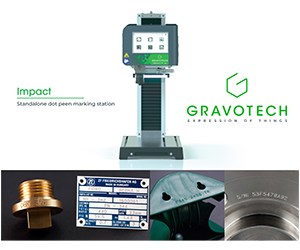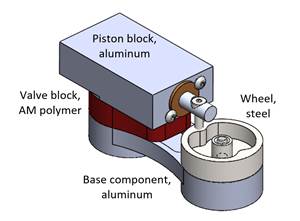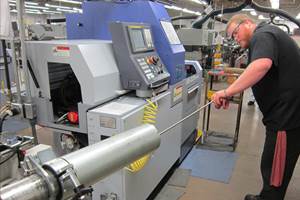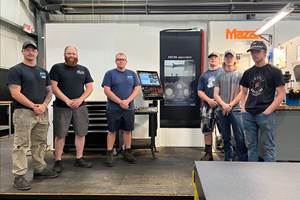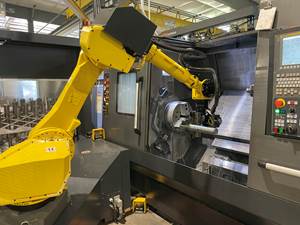The Case for Consistency
Why do manufacturers ask their employees to work within defined systems? Here's why consistency matters.
Every machine shop that advances in success and sophistication eventually has to transition from being a band of craftsmen into operating within a system of defined procedures. The tribe becomes an enterprise. The craftsmanship is still there, but now it is directed toward refining the overall system rather than just making individual parts.
At one shop I visited recently, I was privileged to be present at that transition moment—a moment in which the shop decided to pursue ISO certification. During a crew-wide lunch in which long tables were set up near the shop floor, the shop’s owner and manager overseeing the ISO efforts described the aim of the new system of procedures that would define the shop’s processes. The men described how the defined procedures could (and should) change if they proved problematic, but that following standard procedures would define the shop's culture moving forward. The ISO manager then turned to me, as one who has seen and known a lot of shops, and asked if I would comment on why consistency is important in manufacturing.
What a big question! But what an important question worthy of an answer. What follows is not what I said. What follows is what I would have said had I composed a concise response. The case for systemization, the case for defined procedures in manufacturing, includes the following. Why consistency? Here are the reasons:
Inconsistency Multiplies Cost
Different people performing the same operation in different ways leads to the need for different resources. For example, one machinist may use a tool for a particular job that others do not. Funding different personal preferences produces extra expense.
Inconsistency Gives Error More Opportunity
Every error in manufacturing is the result of a variable that slipped beyond the parameters of control. With fewer variables, error-free manufacturing is easier to maintain. Expanded variables from varying procedures means more can go wrong.
Inconsistency Turns People Into Variables
If team members A and B follow different procedures, then the choice of A or B has an impact on the success of the job. Production shouldn’t be personal.
Inconsistency Makes the Shop a Black Box
Problems have to be diagnosed, with the diagnosis sometimes running upstream through the supply chain. The cause of a poor outcome in a part or assembly can be discovered if every step leading to the outcome is known. If the machine shop has variable procedures, then the path of diagnosis ends at its door. The more critical the part, the more concerning this is.
Inconsistency Clouds the Way to Improvement
The shop that knows its procedures knows what procedures are underperforming and therefore can see precisely what to fix to make its next advance.
Inconsistency Impedes Training
If the way you work is by personal art, then I may or may not be able to learn it. But if the way you work is according to defined steps, I can follow and learn those steps.
What would you add? What benefits has systemization brought to your shop? I'd like to revisit this topic by quoting others on their answer to this same big question. Why consistency? Email me.
Related Content
Solve Worker Shortages With ACE Workforce Development
The America’s Cutting Edge (ACE) program is addressing the current shortage in trained and available workers by offering no-cost online and in-person training opportunities in CNC machining and metrology.
Read More6 Tips for Training on a Swiss-Type Lathe
There are nuances to training a person to effectively operate a Swiss-type lathe. Derek Korn, Production Machining’s editor in chief, shares suggestions from a CNC machine shop.
Read MoreTop Shop Builds Upon Employee Ownership for Future Success
In its quest to become the Fox Valley’s best-in-class employer, A to Z Machine has adopted an ESOP, expanded benefits and invested in apprenticeships.
Read MoreSame Headcount, Double the Sales: Successful Job Shop Automation
Doubling sales requires more than just robots. Pro Products’ staff works in tandem with robots, performing inspection and other value-added activities.
Read MoreRead Next
3 Mistakes That Cause CNC Programs to Fail
Despite enhancements to manufacturing technology, there are still issues today that can cause programs to fail. These failures can cause lost time, scrapped parts, damaged machines and even injured operators.
Read MoreThe Cut Scene: The Finer Details of Large-Format Machining
Small details and features can have an outsized impact on large parts, such as Barbco’s collapsible utility drill head.
Read More
.jpg;width=70;height=70;mode=crop)









.png;maxWidth=300;quality=90)






